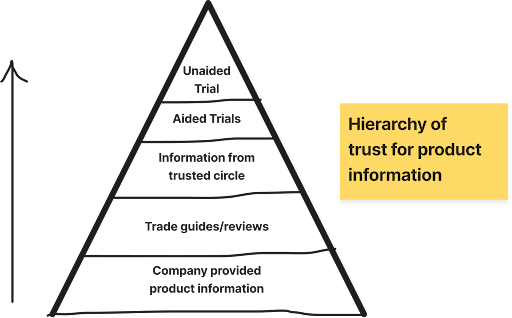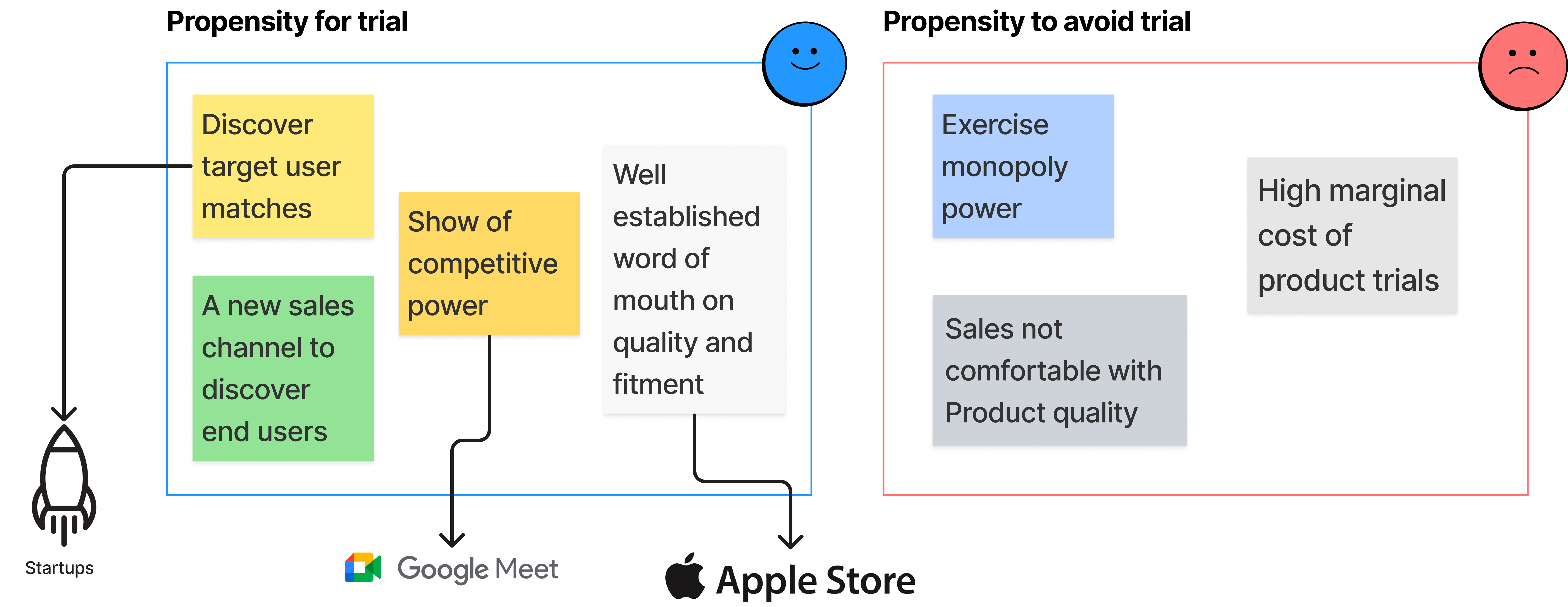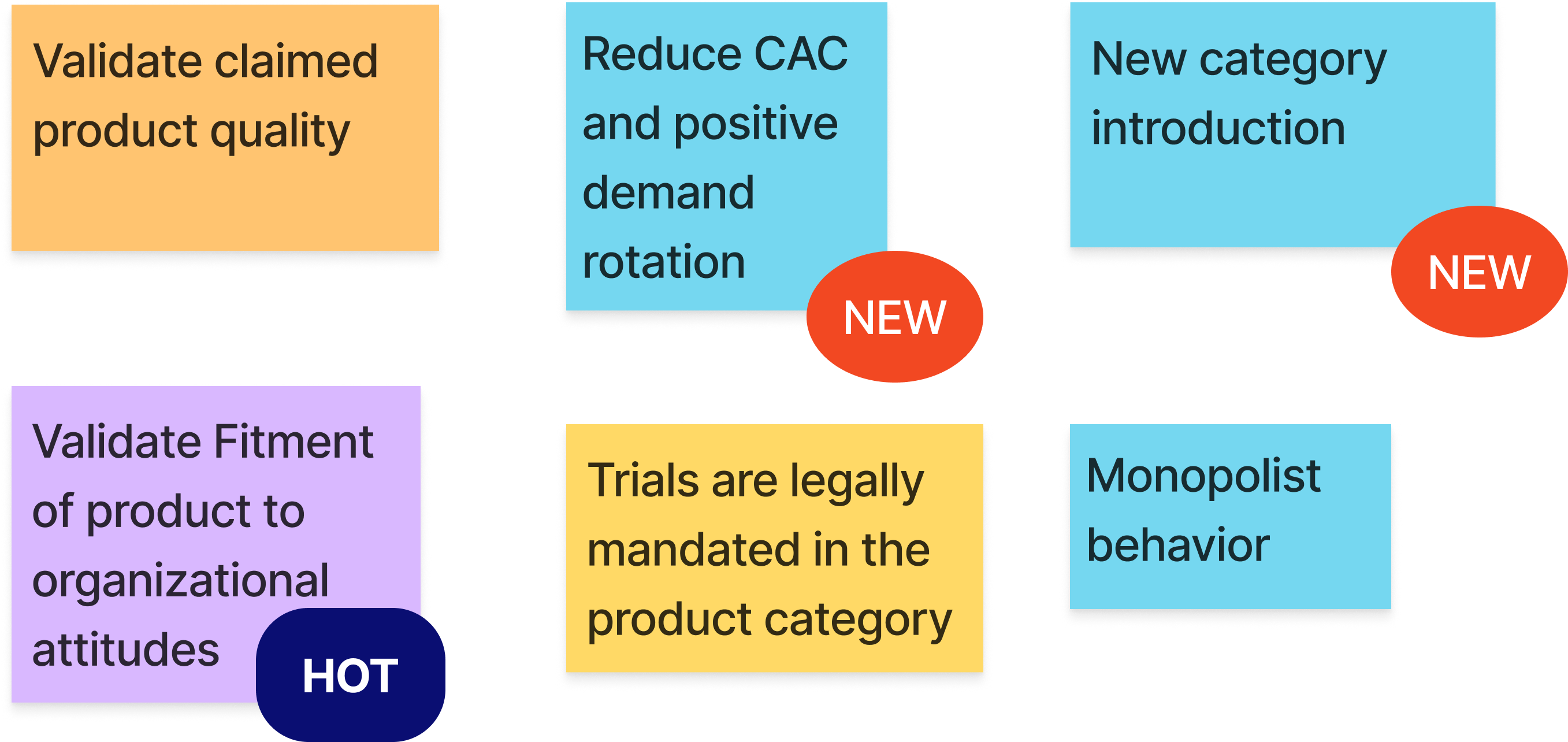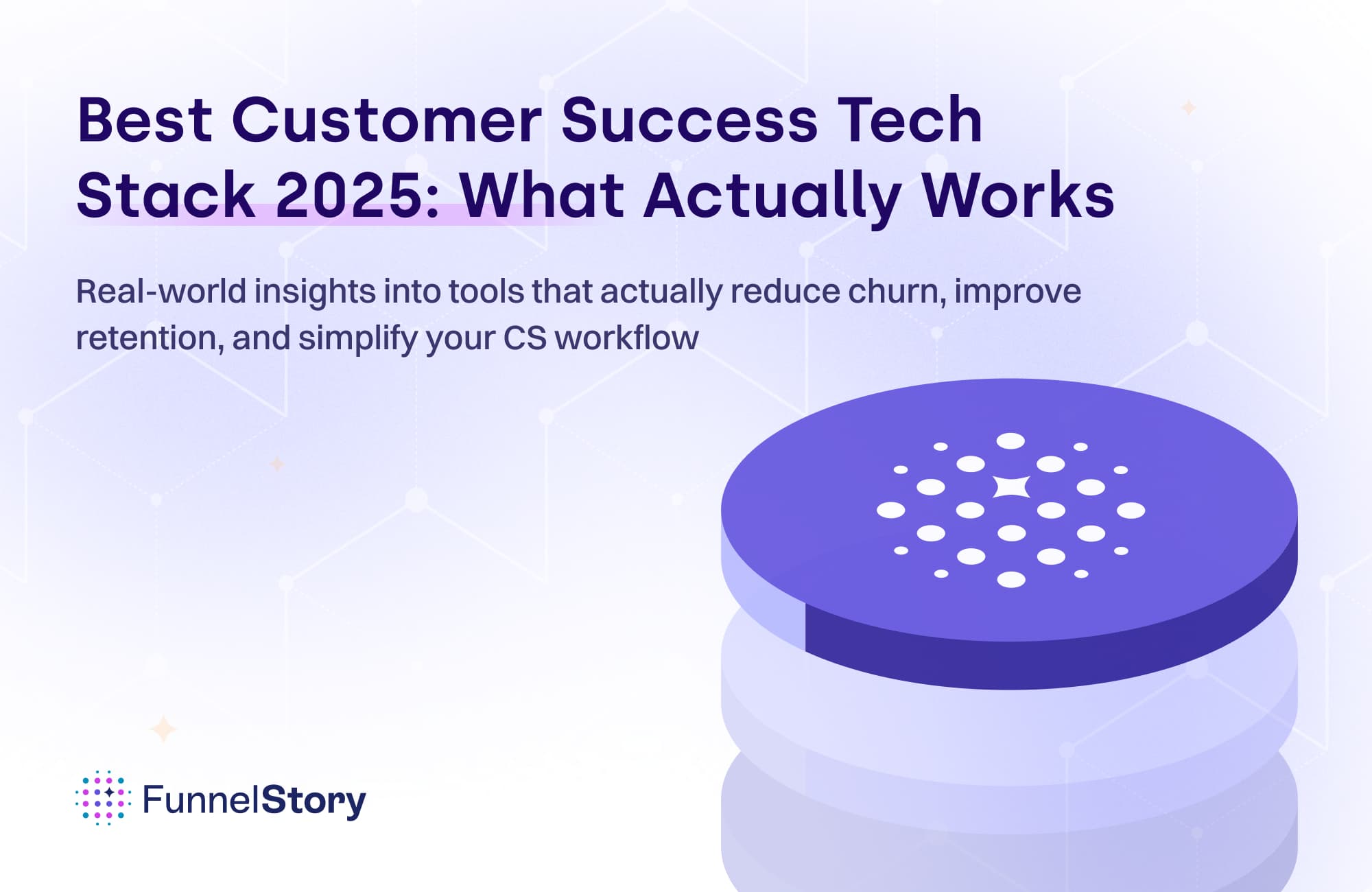In this article
Should you offer a product trial?
Should you offer a Free Trial? In this article we explore what's driving the rise of trials and how you should approach making this decision for your business.

By Alok Shukla
Cofounder and CEO
Aug 08, 2022
2 min read
Product trials are ubiquitous in the B2B world. They have been implemented broadly in two forms - self-serve (free, freemium) or sales-managed proof of concept/value. There are some yet minuscule number of companies who may not offer any trial at all. Your utility companies do not offer a trial - you know that.
Why do B2B users ask for trials?
B2B end users are looking for validation of your quality claims as well as fitment match to their organization attitudes1. Product trials (specifically unaided) are at the top of the hierarchy of trust for product information.

Historically, vendors have been split on offering trials
However, from a vendor perspective, the quick answer is that it depends. Here is an easy-to-use decision criterion.

The sales team might avoid trials or restrict trials for quality and the high cost of conducting trials. They would rather want to perform high qualifications and then tightly manage the trial (if they have to offer). In other cases, companies would strategically encourage trials. Startups to discover product-market fits, to show competitive power (like Google Meet did against Zoom) or just to shorten the sales cycle (try and buy in a store aka Apple Stores).
It is cheaper to offer product trials any time in the history
The marginal cost of serving offering trials has declined radically. Drastic reductions in cloud infrastructure costs have made the marginal cost of serving additional SaaS customers pretty low.

In addition, we now have an entire generation trained in the “try before buy” model thanks to Mobile app stores.
The New rationales for offering product trials
With the marginal cost of offering a trial becoming near zero, it is now possible to use a trial with a low CAC (customer acquisition cost) and impact the demand curve positively. One can also use free trials to introduce new categories of products (and help get adoption).

In recent times user experience and ease of use are becoming one of the hottest reasons to provide trials. One can thank millennials for carrying their B2C experiences (both web apps and mobile app stores) into their workspace.
A note of caution:
Offering product trials without quality and provable claims can hurt really bad. Anytime a company starts offering trials, specifically free trials, it starts information disclosure on a compounded scale (direct and word of mouth). If your product is not proving your claims, you are going to end up negatively rotating the demand curve.

Free Product Trials: Disclosing Quality and Match Value https://economics.clas.ufl.edu/files/gravity_forms/1-71f791102117c58de1ec4b8df2843ad7/2019/10/Free-product-trials-9-30-19.pdf




